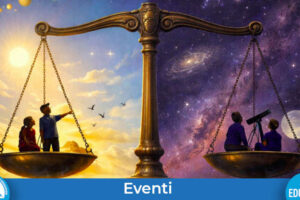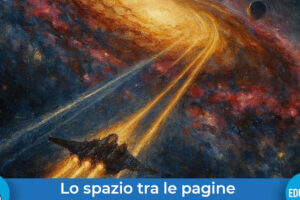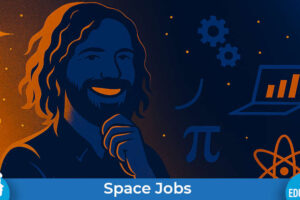 FRESCO (Florence RESidency and COdesign) is a project aimed at co-designing playful resources for children, targeting ages up to 12 years (U12) within an international community, building on previous co-design experiences in the Mediterranean.
FRESCO (Florence RESidency and COdesign) is a project aimed at co-designing playful resources for children, targeting ages up to 12 years (U12) within an international community, building on previous co-design experiences in the Mediterranean.
We specifically focus on playful activities to acquire knowledge and skills in astronomy and astrophysics. In the design process, we mix and match different methods, practices, and instruments around a board game, digital game, tinkering-like and/or hands-on approach, focusing on STEAM, Astronomy, and Astrophysics. Then, we will share our resources with a broader audience, encouraging teachers worldwide to remix these activities in their classroom practice.
FRESCO is one of the two co-design-based residencies organised by OAE Italy Center in 2024 together with SABIR, that will produce resources for high school students.
The residency and in-person co-design meeting was held in Istanbul (from 13 to 16 October 2024), just before The Mediterranean Regional SHAW-IAU Workshop on ASTronomy for EDucation (MASTED), hosted by Istanbul Kultur University, to maximise the attendance in both events for all the participants.
OUR VISION
The Office of Astronomy for Education – Center Italy carries on this project within the general Office of Astronomy for Education framework. One of the aspects dealt explicitly with by OAE Centre Italy is designing and supporting child-centred learning methodologies for the educational level of primary schools, meaning children of age range between 5 and 12 years (U12).
From our experience with schools and educational communities, we have realised that to develop scientific citizenship starting from primary school, we need to overcome the difficulties in building valuable educational practices that are rich and feasible for teachers and students within their different local contexts. Historically, Astronomy education opportunities have been denied or given inadequate access – based on race, ethnicity, gender, disability, or economic status. FRESCO is committed to contributing to Astronomy education decolonisation and to offering more equal opportunities for underserved communities.
We want to stimulate practices that engage pupils and teachers to allow students to “look inside” scientific research and understand how it works, with a child-centred and playful approach, namely through activities that engage pupils and encourage them to actively participate in their learning, focusing on their interests and passions.
For an interesting perspective of a child-centred and playful approach, you may watch this contribution from Carmelo Presicce (Life Long Kindergarden MIT) given at the 3rd Shaw-IAU Workshop on Astronomy for Education.
PROJECT’S DETAILS
The FRESCO project aims to co-design educational resources based on playful approaches, targeting ages up to 12 years (U12), through online cooperative sessions within an international community. Also, for a restricted group of participants, we had an in-presence workshop in October, following the online co-design phase. The in-presence workshop was very useful to finalize the resources, reinforce the network, and work on tailoring and fine-tuning the activities.
The project’s objectives are twofold: on the one hand, we plan to encourage networking and enlarge a community of practitioners devoted explicitly to STEM and Astronomy child-centred education. On the other hand, we plan to test and publish educational astronomy resources (on AstroEdu and/or other platforms) that could be widely spread and used. We will also document and evaluate the codesign, the network-building process and we will assess the resources. A first evaluation was presented during the 6th Shaw-IAU Workshop (here)
FRESCO design specifically focuses on activities using playful and creative learning aimed at acquiring knowledge and skills in astronomy and astrophysics (Game Based Learning – GBL, and Playful Learning – PL)
We selected 10 teams (from Lebanon, Syria, Turkey, Morocco, India, Pakistan, Greece, Portugal, Egypt and Nigeria) that were divided into two groups bringing together people with similar interests. The group are working on GBL and PL activities respectively, designing two board games (on the constellations, as a reference for finding objects and from an intercultural perspective) and a set of playful activities (around the theme of habitability in a galaxy). These activities should engage the children to develop (together and individually) their own solutions to problems, thus encouraging cooperation, the development of life skills, analysis and problem-solving, and their capacity to organise themselves.
This is one of the I-OAE projects building on previous experiences in the Mediterranean (info here http://edu.inaf.it/oae_
As part of the project, the I-OAE Office intends to disseminate most effectively the results of the co-design process. We plan to publish the resources so that they will be widely spread and useful for teachers and practitioners all around the world (AstroEdu when possible and other repositories if applicable). The results of the codesign process will also be widely presented and shared in international Astronomy education conferences. Also, we will pay attention that the activities will be accessible as much as possible, adopting good practices such as publishing a print&play version in the case of a board game, including as much as possible different representation modalities (e.g. different sensory inputs, multiple cultural backgrounds); encouraging translations in many languages, etc.
For any information or questions, please contact:
Alessandra Zanazzi alessandra.zanazzi@inaf.it
Silvia Casu silvia.casu@inaf.it
Sara Ricciardi sara.ricciardi@inaf.it
Stefania Varano stefania.varano@inaf.it



